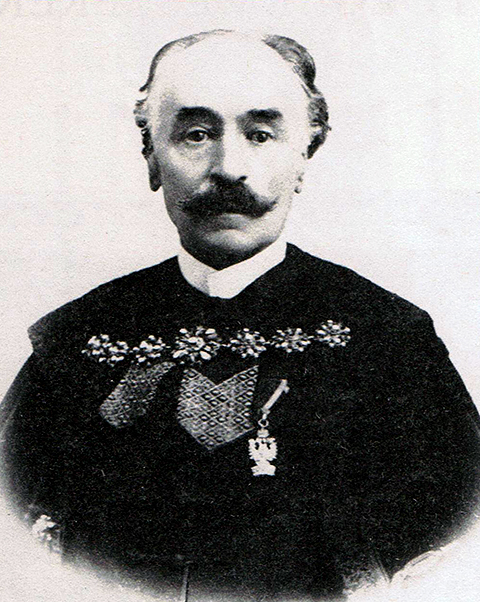|
2014 Budapest Assembly Election
The 2014 Budapest Assembly election was held on 12 October 2014, concurring with other 2014 Hungarian local elections, local elections in Hungary. Voters 2014 Budapest mayoral election, elected the Mayor of Budapest, and the mayors of the List of districts in Budapest, 23 districts directly, while 9 seats in the assembly were distributed proportionally, taking into account votes cast for losing district mayoral candidates. This was the first election held under these rules, previously all seats (except for the Mayor) were elected with a party-list method. Background Regarding the Budapest Assembly election, the Fidesz-dominated National Assembly (Hungary), National Assembly amended the electoral law in June 2014 after an announcement by Fidesz politicians Lajos Kósa and Antal Rogán, half a year before the local elections took place. The amendment, according to analysts, was formed according to the current interests of the ruling party, since it forced cooperation between rival ... [...More Info...] [...Related Items...] OR: [Wikipedia] [Google] [Baidu] |
General Assembly Of Budapest
The General Assembly of Budapest ( ) is a unicameral body consisting of 33 members, who are elected by proportional representation in a single citywide constituency with an electoral threshold of 5%, and the Mayor of Budapest (who is Direct election, elected directly). Each term for the mayor and assembly members lasts five years. 2024 election results Mayoral Result of the mayoral election: General Assembly List of mayors Council history Assembly members Committees See also * National Assembly (Hungary) * Budapest {{Authority control Organizations with year of establishment missing Organisations based in Budapest Local government in Hungary Unicameral legislatures of country subdivisions, Budapest ... [...More Info...] [...Related Items...] OR: [Wikipedia] [Google] [Baidu] |
Dialogue – The Greens' Party
Dialogue – The Greens' Party (, , prior to 2023 known as Dialogue for Hungary, , ), in short Párbeszéd or Párbeszéd – Zöldek, is a green political party in Hungary that was formed in February 2013 by eight MPs who left the Politics Can Be Different (LMP) party. Since its foundation, the party has never independently participated in any election. History The Dialogue for Hungary party had formed a coalition with the Together 2014 party; together, they won four seats in the national assembly and one seat in the European Parliament. Dialogue for Hungary took one seat from the four in the Hungarian parliament and had one representative in Brussels. On 24 August 2016, spokesperson Bence Tordai announced that the shortened form of the party's name would change to "Dialogue". In September 2016, the party's logo was changed to Párbeszéd (Dialogue), instead of "PM" by removing the word Hungary. In the spring of 2018 the party formed an alliance with the Hungarian Socialis ... [...More Info...] [...Related Items...] OR: [Wikipedia] [Google] [Baidu] |
Together (Hungary)
Together (, ), officially Together – Party for a New Era (), formerly also known as Together 2014 (), was a Social liberalism, social-liberal List of political parties in Hungary, political party in Hungary formed on 26 October 2012 for the 2014 Hungarian parliamentary election by Gordon Bajnai, the former Prime Minister of Hungary, to contest Viktor Orbán's government. Together was founded as a coalition of left-wing and liberal political movements and civil organizations that transformed itself into a party in March 2013. The party had formed an electoral alliance with the Dialogue for Hungary (PM) and they won together four seats in the Hungarian Parliament, national assembly and one seat in the European Parliament in 2014. Together dissolved after its poor performance in the 2018 Hungarian parliamentary election, 2018 parliamentary election. Members During its foundation, the coalition consisted of three civil society organizations: * Patriotism and Progress Association led ... [...More Info...] [...Related Items...] OR: [Wikipedia] [Google] [Baidu] |
Democratic Coalition (Hungary)
The Democratic Coalition ( , DK ) is a social democratic and social-liberal political party in Hungary led by former Prime Minister Ferenc Gyurcsány. Founded in 2010 as a faction within the Hungarian Socialist Party (MSZP), the Democratic Coalition split from the MSZP on 22 October 2011 and became a separate party. It has fifteen MPs in the National Assembly and two MEPs in the European Parliament. History Within the Socialist Party On 5 October 2010, Ferenc Gyurcsány announced to the Socialist Party (MSZP) party executive that he was founding a platform named the Democratic Coalition within the party. He stated that he would organize "a broad, open social community for 1989 Democrats", and political representation for them. The mood at the meeting was calm, but several party officials expressed disagreement with him. The plan, however, pushed through. The Democratic Coalition held its inaugural meeting at 2 p.m. in the Szent István Park in the 13th District on 22&n ... [...More Info...] [...Related Items...] OR: [Wikipedia] [Google] [Baidu] |
Hungarian Socialist Party
The Hungarian Socialist Party (, ), commonly known by its acronym MSZP (), is a centre-left to left-wing social-democratic and pro-European political party in Hungary. It was founded on 7 October 1989 as a post-communist evolution and one of two legal successors of the Hungarian Socialist Workers' Party (MSZMP). Along with its conservative rival Fidesz, MSZP was one of the two most dominant parties in Hungarian politics until 2010; however, the party lost much of its popular support as a result of the Őszöd speech, the consequent 2006 protests in Hungary, and then the 2008 financial crisis. Following the 2010 election, MSZP became the largest opposition party in parliament, a position it held until 2018, when it was overtaken by the former far and now centre-right Jobbik. History The MSZP evolved from the communist Hungarian Socialist Workers' Party (or MSZMP), which ruled Hungary between 1956 and 1989. By the summer of 1989, the MSZMP was no longer a Marxist–Leninist ... [...More Info...] [...Related Items...] OR: [Wikipedia] [Google] [Baidu] |
Antal Rogán
Antal Rogán (born 29 January 1972) is a Hungarian economist and politician, who serves as Minister of the Prime Minister's Cabinet Office. He served as Mayor of Belváros-Lipótváros (fifth district of Budapest) from 2006 to 2014. On Tuesday January 7, 2025, he was hit with US sanctions for his alleged involvement in corruption in Hungary. On Wednesday, 16 April, 2025, the sanctions against him were removed by the US government. Political career He became a member of the National Assembly (MP) in the 1998 parliamentary election. He had been leader of the Fidesz parliamentary group since 2 June 2012. Rogán was appointed Minister of the newly-formed Prime Minister's Cabinet Office on 17 October 2015. In January 2025 the Biden administration sanctioned him for corruption under the Magnitsky Act. The press release of the United States Department of the Treasury claims Rogán has built a network of corruption in Hungary aimed at controlling strategic sectors and channeling th ... [...More Info...] [...Related Items...] OR: [Wikipedia] [Google] [Baidu] |
Lajos Kósa
Lajos Kósa (born 14 March 1964) is a Hungarian politician, who served as Mayor of Debrecen between 1998 and 2014. He has been a Member of Parliament since 1990. Kósa was appointed one of the four Vice Presidents of the Fidesz party in 2007, alongside Ildikó Pelczné Gáll, Zoltán Pokorni and Mihály Varga. He also secured an individual mandate during the 2010 Hungarian parliamentary election, parliamentary election in 2010. He retained his membership of the Local Government and Urban Development Committee. He was nominated First or Managing Vice President of Fidesz, after Party President Viktor Orbán was appointed Prime Minister of Hungary on 14 May 2010. He was appointed leader of the Fidesz parliamentary group on 1 October 2015. He became minister without portfolio responsible for the Modern Cities Program on 2 October 2017, holding the position until 18 May 2018. A huge scandal broke out in March 2018 involving Lajos Kósa and 4,3 billion euros. In November 2021 Mr. K� ... [...More Info...] [...Related Items...] OR: [Wikipedia] [Google] [Baidu] |
National Assembly (Hungary)
The National Assembly ( ) is the parliament of Hungary. The unicameral body consists of 199 (386 between 1990 and 2014) members elected to four-year terms. Election of members is done using a semi-proportional representation: a mixed-member majoritarian representation with partial scorporo, compensation via transfer votes and mixed single vote; involving single-member districts and one list vote; parties must win at least 5% of the popular vote in order to gain list seats. The Assembly includes 25 standing committees to debate and report on introduced bills and to supervise the activities of the ministers. The Constitutional Court of Hungary has the right to challenge legislation on the grounds of constitutionality. Under Hungarian People's Republic, communist rule, the National Assembly existed as the highest organ of state power, supreme organ of state power as the sole branch of government in Hungary, and per the principle of unified power, all state organs were subservient ... [...More Info...] [...Related Items...] OR: [Wikipedia] [Google] [Baidu] |
Fidesz
Fidesz – Hungarian Civic Alliance (; ) is a national-conservative political party in Hungary led by Viktor Orbán. It has increasingly identified as illiberal. Originally formed in 1988 under the name of Alliance of Young Democrats () as a centre-left and liberal activist movement that opposed the ruling Marxist–Leninist government. It was registered as a political party in 1990, with Orbán as its leader. It entered the National Assembly following the 1990 parliamentary election. Following the 1998 election, it successfully formed a centre-right government. It adopted nationalism in the early 2000s, but its popularity declined due to corruption scandals. It was in opposition between 2002 and 2010, and in 2006 it formed a coalition with the Christian Democratic People's Party (KDNP). Fidesz won a supermajority in the 2010 election, adopted national-conservative policies, shifted further to the right and became Eurosceptic. The 2011 adoption of a new Hungarian co ... [...More Info...] [...Related Items...] OR: [Wikipedia] [Google] [Baidu] |
List Of Districts In Budapest
Budapest, the capital of Hungary has 23 districts (, ), each with its own Municipality, municipal government. The number of districts in Budapest Budapest was organized into 10 districts (numbered from I to X) in 1873 after the unification of the cities of Pest (city), Pest, Buda and Óbuda. The districts at that time: *Buda: I, II *Óbuda: III *Pest: IV, V, VI, VII, VIII, IX, X In the 1930s, 4 new districts were organized, numbered from XI to XIV. On 1 January 1950, 7 neighboring towns and 16 villages were annexed to Budapest by creating 9 new districts, so the number of its districts increased to 22. District IV was annexed to District V and the number IV was given to the northernmost newly merged town, Újpest. Former district borders were also partly modified but the old numbering system is still clear on the map. In 1994, Soroksár left Pesterzsébet, District XX, became the newest district and received the number XXIII. Districts Listed below are the ordinal numbers of the ... [...More Info...] [...Related Items...] OR: [Wikipedia] [Google] [Baidu] |
Mayor Of Budapest
The Mayor of Budapest (, ) is the head of the General Assembly in Budapest, Hungary, elected directly for 5-year term since 2014 (previously municipal elections were held quadrennially). Until 1994 the mayor was elected by the General Assembly. The office was called Chairman of the Council of Budapest () between 1950 and 1990, during the Communist period. Since 1990, the position is domestically known as Lord Mayor () to distinguish the office from that of the mayors that lead each of Budapest's 23 districts. Between 1873 and 1945, the Lord Mayor of Budapest was representative of the Hungarian government as head of the capital's municipal authority, similarly to the Lord-Lieutenants of Counties. History Austria-Hungary The newly elected 400-member General Assembly of Budapest held its inaugural session on 25 October 1873, as a major step in the unification process of Buda and Óbuda on the west bank, with Pest on the east bank of the river Danube. The assembly elected th ... [...More Info...] [...Related Items...] OR: [Wikipedia] [Google] [Baidu] |



